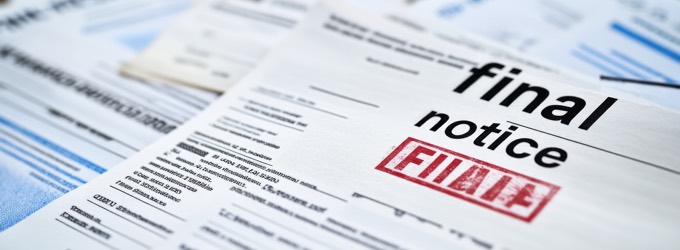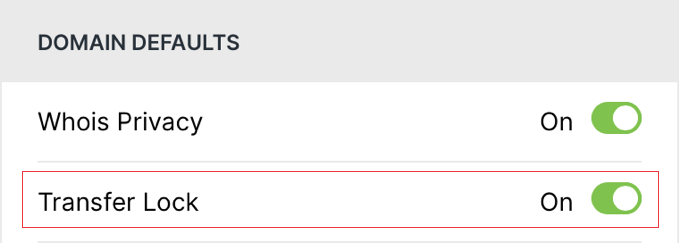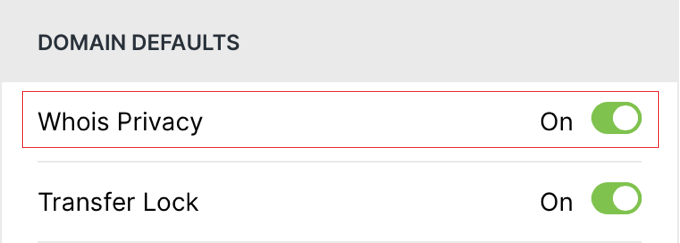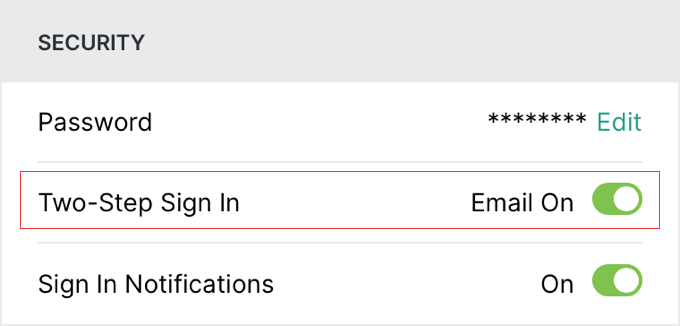6 Common Domain Name Scams to Avoid (& How to Spot Them)
‘Your area identify is about to run out!’ This scary e-mail lands in hundreds of enterprise house owners’ inboxes each day.
Many of those pressing messages could also be scams. They’re cleverly designed to imitate reliable renewal notices from actual area registrars. This makes it almost not possible to inform the distinction at first look.
I’ve been serving to web site house owners keep away from these traps for a few years. Alongside the best way, I’ve seen these scams evolve from easy e-mail methods to classy schemes that may idiot even skilled web site house owners.
I’ve created this information to point out you what these area identify scams appear to be and defend your self. Whether or not you personal one area identify or 100, the following pointers will show you how to defend your self from area identify scams.

What Are Area Title Scams?
Have you ever ever obtained an alarming message telling you that your domain name is about to run out? Perhaps it even demanded fast cost to stop your web site from being taken down.
These area identify scams are designed to extract cash or delicate info from area house owners or potential patrons.
Scammers use a variety of techniques—emails, telephone calls, even conventional mail—to catch you off guard. They typically fake to be actual organizations and make their communications look official.
Now, let’s check out the most typical area identify scams you might even see.
1. Deceptive Renewal Notices and Invoices

Just a few months again, I opened my inbox to seek out an e-mail with the topic line: ‘URGENT: Your area identify is about to run out!’
The e-mail regarded official, and it even had a well-recognized emblem and included my area identify.
However one thing felt off.
The renewal payment they requested for was twice what I normally pay. Plus, the sender’s e-mail tackle was generic as a substitute of my precise domain name registrar‘s official e-mail. That’s after I realized it was a rip-off attempting to trick me into both paying pointless charges to a pretend firm or unknowingly transferring my area to their management.
⚠️ How These Scams Work
This apply is commonly often called ‘area slamming’. Scammers would possibly:
- Ship official-looking emails or letters that mimic the branding of reliable registrars.
- Use pressing language like ‘Quick Motion Required’ or ‘Closing Discover’ to stress you to behave with out considering.
- Inflate renewal charges, charging costs a lot larger than commonplace charges.
- Trick you into transferring domains by sneakily together with switch authorization, so that you unintentionally transfer your area identify to a different registrar.
It’s not simply digital communications. Some folks get telephone calls from scammers posing as customer support representatives, insisting on fast cost.
And I’ve even obtained letters within the mail that regarded actual. That they had skilled letterheads and detailed details about my area identify.
One letter claimed I’d lose my area identify if I didn’t pay a steep renewal payment instantly. If I hadn’t been cautious, I might need fallen for it.
✅ The right way to Defend Your self
Right here are some things you are able to do to guard your self from deceptive renewal notices and invoices:
- Confirm the Sender: All the time examine that emails, calls, or letters are actually out of your area registrar. Take a look at the e-mail tackle or name again utilizing the official quantity on their web site.
- Test Your Area Title’s Expiration Date: Log in to your area registrar’s account dashboard to check when your domain name expires.
- Keep away from Appearing on Urgency Alone: Scammers depend on panic. Take a second to breathe and assess the state of affairs.
- Contact Your Area Registrar Immediately: If doubtful, use official contact particulars, not those supplied within the suspicious communication.
- Educate Your Group: Ensure that your group that manages your domains is conscious of those scams to stop unintentional loss.
For extra particulars, simply see the last section in this article.
2. Phishing Scams Resulting in Area Hijacking

I as soon as obtained an e-mail that appeared to be from my area registrar. It had all the appropriate logos and talked about my area identify. The topic line learn, ‘Necessary: Safety Replace Required.’
However earlier than I clicked the hyperlink within the e-mail, I observed the URL didn’t look proper. I noticed it was a phishing try.
⚠️ How These Scams Work
Phishing scams are designed to trick you into handing over your login credentials. Scammers create emails or web sites that mimic reliable firms, hoping you’ll:
- Click on on malicious hyperlinks that result in pretend login pages that seize your username and password.
- Present delicate info, like your checking account particulars or passwords by means of types or direct replies.
- Obtain contaminated attachments that set up malware that may compromise your safety.
Bear in mind, phishing makes an attempt aren’t restricted to e-mail. Scammers may use telephone calls, textual content messages, and social media.
As soon as they’ve your login info, they’ll entry your area registrar account and take full management. That is known as area hijacking.
By hijacking your area, scammers can switch your area identify to a different registrar with out your permission. They’ll additionally redirect your web site to malicious websites or maintain it hostage till you pay a ransom.
Bear in mind, reliable firms won’t ever ask you to supply delicate info by means of unsecured channels.
✅ Defending Your self From Phishing and Area Hijacking
Right here are some things you are able to do to guard your self in opposition to phishing and area hijacking:
- Allow Two-Issue Authentication (2FA) for Your Area Account: This provides an additional layer of safety by requiring a second type of verification. Most registrars supply two-factor authentication (2FA) choices—normally by way of an authenticator app or SMS code.
- Confirm Earlier than You Click on: Examine the e-mail tackle as a result of scammers typically use addresses that look just like official ones. Earlier than clicking, hover over the hyperlink to see the place it really leads. If it doesn’t match the official web site, don’t click on.
- Monitor Account Exercise: Most registrars let you obtain notifications for account modifications. Allow these alerts so that you’ll get an e-mail at any time when somebody logs in, modifications settings, or makes an attempt to switch your area. This fashion, you’ll know instantly if one thing suspicious occurs to your account.
3. Faux Area Buy and Appraisal Scams

Think about getting an unsolicited e-mail from somebody keen to purchase your area identify at a premium value.
Earlier than you begin celebrating, it’s worthwhile to make it possible for the supply is reliable.
⚠️ How These Scams Work
Scammers typically use this tactic to use area identify house owners:
- They specific robust curiosity in your area, typically providing a value that’s above market worth. (Associated: Be taught how much your website is worth.)
- They insist that you simply acquire a ‘licensed area appraisal’ from a particular service they advocate.
- The supposed purchaser disappears when you pay for the appraisal, leaving you out of pocket.
- In some circumstances, they could use this rip-off to gather delicate details about you or your area identify.
I’ve heard tales from different web site house owners who’ve come throughout related schemes. These scams prey on the thrill of constructing a worthwhile sale.
✅ Defending Your self from These Scams
Right here’s how one can defend your self in opposition to pretend buy and appraisal scams:
- Analysis the Purchaser: Reputable patrons sometimes have a longtime net presence, comparable to an expert web site, LinkedIn profile, or enterprise listings. If you happen to can’t discover any details about them on-line, that’s a significant pink flag
- Be Skeptical of Appraisal Requests: Reputable patrons don’t normally require sellers to pay for value determinations. Be cautious if they need you to make use of a particular firm you’ve by no means heard of. If you happen to determine to get an appraisal, then select a good service you realize and belief.
- Keep away from Sharing Delicate Info: By no means share your delicate data by means of e-mail. Reputable patrons solely want fundamental info to make a suggestion. In the event that they insist on delicate particulars upfront, direct them to make use of a good area dealer or escrow service the place transactions are protected.
I clarify these safeguards in additional element at the end of this article.
4. Trademark Infringement and Associated Area Scams

Companies could obtain alarming messages claiming that somebody is making an attempt to register related domains that probably infringe on their trademark.
These communications typically ask for fast motion to stop model harm, creating a way of urgency and concern.
⚠️ How These Scams Work
Listed here are some methods scammers exploit model safety issues:
- They declare that somebody is registering domain names that carefully resemble your model or trademark.
- Phrases like ‘pressing motion required’ or ‘fast consideration wanted’ are used to stress companies into fast responses.
- Scammers could recommend buying further domain extensions or companies to ‘safeguard’ the model, which are sometimes pointless.
These scams typically arrive by way of e-mail or telephone. To seem reliable, they might use official-sounding language or authorized terminology. They wish to frighten you into making a rushed resolution.
✅ Defending In opposition to Trademark Infringement Scams
To keep away from falling sufferer to those schemes:
- Don’t Panic and Rush to Reply: Take time to confirm if there’s an actual drawback. Scammers need you to behave with out considering.
- Confirm the Claims: Test the legitimacy of the group contacting you. Search for official contact info and confirm by means of trusted sources. Additionally, search for pink flags comparable to generic greetings, spelling errors, or e-mail addresses that don’t match official domains.
- Seek the advice of a Authorized Skilled: An mental property legal professional can assess the state of affairs and advise on applicable actions. Realizing the authorized protections already in place can present reassurance and information selections.
- Conduct Impartial Checks: Carry out a WHOIS lookup to examine if the domains in query are literally being registered or can be found. Additionally, if you happen to’re inspired to register further domains, decide if this aligns with the model’s technique and desires.
Test the end of this article for extra detailed info on defend your self.
5. Homograph Assaults (Typosquatting)

Area scammers typically use a trick known as a homograph assault. They register domains that look nearly equivalent to reliable ones, however use completely different characters.
For instance, they could register ‘exɑmple.com’ as a substitute of ‘instance.com’. The ‘a’ appears to be like the identical, but it surely’s really a unique character from one other alphabet.
This method makes rip-off emails look reliable at first look. Once you obtain a message about your area identify, at all times examine the sender’s e-mail tackle and any hyperlinks fastidiously for these delicate character substitutions.
⚠️ How These Scams Work
Homograph assaults trick us as a result of we normally learn phrases by how they take a look at first look, as a substitute of fastidiously checking every letter.
Scammers register domains which might be visually just like common websites by:
- Utilizing Lookalike Characters: Changing letters with equivalent or near-identical characters from completely different alphabets (e.g., Cyrillic ‘ɑ’ as a substitute of Latin ‘a’).
- Widespread Misspellings: Registering domains with frequent typos (e.g., ‘gooogle.com’ as a substitute of ‘google.com’).
- Alternate TLDs: Utilizing completely different top-level domain names (TLDs) like ‘.internet’ as a substitute of ‘.com’ to catch customers off guard.
When you go to these pretend websites, scammers could steal your private info by prompting you to log in or enter delicate information.
Alternatively, they’ll obtain malicious software program onto your system or show undesirable advertisements or content material to generate income by means of advert impressions or affiliate hyperlinks.
✅ Defending Your self from Homograph Assaults
Right here’s what I’ve discovered to do to remain protected:
- Double-Test URLs: Hover over hyperlinks to see the precise URL earlier than you click on them. Then, whenever you arrive on the web site, look fastidiously on the tackle bar to verify it’s appropriate.
- Use Bookmarks for Necessary Websites: Keep away from typing URLs manually or clicking hyperlinks in suspicious emails. As a substitute, create bookmarks for frequent websites in an effort to navigate them rapidly.
- Allow Browser Warnings: Trendy browsers typically have safeguards in opposition to identified malicious websites. Plus, you may think about including a good safety extension to your browser that warns about suspicious web sites.
- Be Cautious of Unsolicited Communications: Don’t click on on hyperlinks from surprising emails or texts, even when they appear pressing. If you’re doubtful, please contact the group immediately utilizing its official contact info.
- Educate Your Group and Household: Let others learn about these scams, particularly if they’ve entry to delicate accounts. Then, set tips for verifying communications and reporting suspicious exercise.
I cowl these methods in additional element later in this article.
6. Associated: search engine marketing and Search Engine Submission Scams

Some time again, I obtained an e-mail providing to submit my web site to ‘a whole bunch of search engines like google’ for a small payment. The message promised fast outcomes and high rankings.
It sounded tempting—who wouldn’t need their website to be simply discovered on-line?
Sadly, that is one other frequent sort of rip-off.
⚠️ How These Scams Work
search engine marketing and search engine submission scams prey on the will to get extra site visitors. Scammers would possibly:
- Supply to submit your area to quite a few search engines like google. However main search engines like google like Google and Bing mechanically crawl and index web sites, and you’ll submit your site to search engines totally free.
- Promise high rankings in a single day. However genuine SEO is a long-term technique, and nobody can assure on the spot high positions.
- Request cost for secret algorithms or insider data. However search engine algorithms are proprietary and carefully guarded. Anybody claiming insider entry is deceptive you.
These gives typically come by way of unsolicited emails or advertisements and use buzzwords like ‘assured site visitors’ or ‘on the spot search engine marketing success’ to lure you in.
✅ Defending Your self from search engine marketing Scams
Right here’s what I’ve discovered to do when confronted with these tempting gives:
- Analysis Earlier than You Act: Lookup evaluations or complaints about them on-line. Be skeptical of phrases like ‘on the spot outcomes’ or ‘secret strategies’.
- Perceive How Search Engines Work: Know that main search engines like google will discover and index your website mechanically. And perceive that search engine marketing takes time and entails optimizing content, improving site speed, and different strategies.
- Be Cautious of Unsolicited Gives: Keep away from chilly emails. Respected search engine marketing corporations don’t sometimes ship unsolicited messages promising on the spot outcomes. Scammers could urge you to behave rapidly to safe a deal, however don’t let urgency push you to behave.
- Observe Respected search engine marketing Practices: Be taught the fundamentals. Understanding fundamental SEO can assist you notice unrealistic claims.
- Take into account Trusted Professionals: If you happen to need assistance, then work with established search engine marketing consultants who’ve verified testimonials.
- Defend Your Info: Be cautious if anybody asks for login credentials or monetary info upfront. And if you happen to do determine to have interaction a service, be sure that the transactions occur securely.
Within the next section of this text, I’ll clarify in additional element one of the best methods for shielding your self from area identify scams.
Tricks to Defend Your self From Area Title Scams

Through the years, I’ve used a number of methods to maintain my domains protected from scammers. Listed here are some steps you may take to safeguard your domains.
✅ Allow Registrar Lock
One of many first issues I did after registering my domains was to allow registrar lock, which is often known as area lock. This easy setting prevents unauthorized transfers of your area identify to a different registrar.
Merely log in to your area registrar’s management panel and search for the area lock possibility. Within the instance beneath, it’s labeled ‘Switch Lock’, however some registrars could use completely different wording.
If you happen to’re uncertain, attain out to your registrar’s help group for steering.

✅ Use WHOIS Privateness Safety
Once I first registered a website identify, I used to be shocked to seek out my private contact info listed publicly within the WHOIS database. This visibility could make you a goal for scammers.
By enabling WHOIS privateness safety, your private particulars are hidden from public view.

If you happen to’re interested in how this works, our information on how to find out who actually owns a domain name explains discover area possession info and the significance of privateness.
✅ Usually Monitor Your Area Title Standing
It’s simple to overlook renewal dates, particularly in case you have a number of domains.
I like to recommend organising area expiry reminder emails immediately along with your area registrar and enabling computerized domain name renewals.
For extra info, see our information on how to check your domain expiration date.
✅ Educate Your Group
You probably have group members who deal with domain-related duties, it’s vital that additionally they learn about these scams.
You’ll be able to maintain temporary periods along with your group to debate frequent scams and determine them. Plus, you must arrange clear procedures for verifying whether or not an e-mail is reliable and the way you’ll method renewing domains.
✅ Confirm Communications
Scammers typically ship messages that seem pressing and bonafide. I’ve made it a behavior by no means to behave on such messages with out verifying them.
Take a look at the e-mail tackle or telephone quantity fastidiously. Scammers typically use addresses which might be related however not equivalent to official ones.
And as a substitute of replying to the e-mail or clicking on supplied hyperlinks, go on to your registrar’s web site or name them utilizing the quantity on their official website.
✅ Use Two-Issue Authentication (2FA)
Including an additional layer of safety could make a giant distinction. I enabled 2FA on my area registrar accounts, so even when somebody guesses my password, they’ll’t entry my account with out the second verification step.
Most area registrars supply 2FA choices, that are normally discovered within the account safety settings. For instance, some registrars allow you to allow 2FA with a easy ‘Two-Step Signal In’ toggle swap.

Tip: You can too add two-factor authentication in WordPress to guard your web site.
✅ Deal Solely with ICANN-Accredited Registrars
Selecting a good registrar can prevent loads of bother down the road. ICANN-accredited registrars comply with respected requirements and are much less prone to interact in suspicious practices.
For suggestions, see our decide of the best domain name registrars.
✅ Maintain Your Contact Info As much as Date
Make sure that your area’s contact info is updated. I overview my contact particulars yearly or at any time when there’s a change.
In case your registrar wants to achieve you for vital updates or verifications, then outdated contact info may cause delays.
✅ Be Skeptical of Unsolicited Gives
Whether or not it’s an e-mail about search engine marketing companies or a name from somebody wanting to purchase your area, method unsolicited communications with warning.
Don’t conform to something on the spot. Take the time to confirm the supply or service. If you’re uncertain, then search recommendation from trusted colleagues or business consultants.
Incessantly Requested Questions About Area Title Scams
Many web site house owners fear once they obtain messages about their domains. Primarily based on my expertise serving to web site house owners, listed here are solutions to the most typical area safety questions.
1. What’s a website identify rip-off?
Area identify scams are misleading practices that attempt to trick area house owners or potential patrons into giving up cash or delicate info.
Scammers use techniques like pretend renewal notices, phishing emails, and deceptive gives to use unsuspecting people.
2. How can I inform if a renewal discover is a rip-off?
Phrases like ‘Quick Motion Required’ or ‘Closing Discover’ are sometimes utilized by scammers. You must also be cautious of emails or letters from firms you don’t acknowledge.
In addition to that, be careful for renewal prices which might be considerably larger than your ordinary charge. And at all times confirm any renewal discover by logging into your registrar’s web site or contacting their buyer help immediately.
3. What’s area slamming?
Area slamming is when scammers ship deceptive switch or renewal notices to trick you into switching area registrars or paying pointless charges.
Be sure you learn all messages fastidiously and examine that they’re out of your precise area registrar. And at all times be skeptical of surprising emails or letters about your area identify.
4. How do phishing scams result in area hijacking?
Phishing scams trick you into revealing your login credentials by mimicking your area registrar’s web site or communications.
I as soon as acquired an e-mail that regarded prefer it was from my area registrar, asking me to log in attributable to ‘suspicious exercise’. As a substitute of clicking the hyperlink, I accessed my account immediately and located every part was tremendous.
I like to recommend you allow Two-Issue Authentication (2FA) so as to add an additional layer of safety. Additionally, by no means click on suspicious hyperlinks, and navigate to your registrar’s website manually.
Lastly, use robust, distinctive passwords, and keep away from utilizing the identical password throughout a number of websites.
5. What ought to I do if somebody gives to purchase my area?
Whereas it may be thrilling to obtain an unsolicited supply, be sure that to watch out. Pink flags embody once they insist you pay for an appraisal service and make very excessive gives as bait.
My recommendation is to analysis the customer, confirm their credibility, and by no means pay upfront charges.
6. Are the trademark infringement notices I obtain at all times reliable?
Not essentially. Scammers attempt to use concern round model safety.
Be careful for urgency and stress. Scammers typically push you to behave rapidly and demand charges to ‘defend’ your model.
7. How do homograph assaults (typosquatting) work?
Scammers register domains that appear to be yours by utilizing related or worldwide characters. For instance, they might change ‘o’ with ‘0’ (zero) in a website identify.
You’ll want to double-check URLs earlier than clicking on hyperlinks or getting into info. And it’s finest to navigate to vital websites utilizing saved bookmarks.
8. What ought to I do if I think I’ve been focused by a rip-off?
First, don’t interact and keep away from responding to the scammer. Subsequent, change your passwords to safe your accounts instantly.
Lastly, you must contact your area registrar and inform them of the suspicious exercise. You can too report the rip-off to the suitable authorities or on-line platforms.
9. Can somebody steal my area identify?
Sure, area hijacking is an actual risk.
That’s why we advocate utilizing robust passwords and two-factor authentication (2FA) when logging in to your area registrar account. This makes unauthorized entry harder.
Additionally, you must commonly monitor your area standing and think about using a registrar lock. This provides an additional layer of safety in opposition to unauthorized transfers.
10. Why am I receiving so many unsolicited emails about my area?
In case your area’s WHOIS info is public, then scammers can simply discover your contact particulars.
The answer is to allow WHOIS privateness safety, which hides your private info from public databases.
I hope this tutorial helped you find out about frequent area identify scams and keep away from them. You might also wish to see our information on how to check domain name availability or our skilled decide of the best domain name generators that can assist you decide a website quick.
If you happen to favored this text, then please subscribe to our YouTube Channel for WordPress video tutorials. You can too discover us on Twitter and Facebook.




